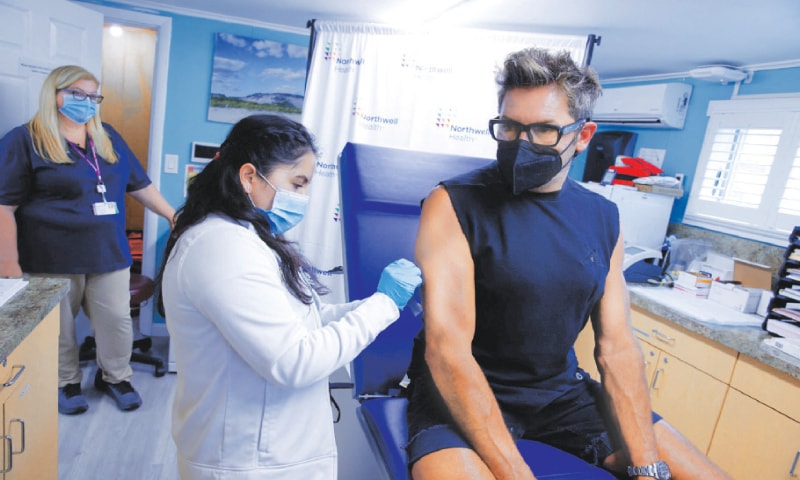GENEVA: The rapidly spreading monkeypox outbreak represents a global health emergency, the World Health Organisation’s highest level of alert, WHO Director-General Tedros Adhanom Ghebreyesus said on Saturday.
The World Health Organisation on Saturday declared the outbreak, which has affected nearly 16,000 people in 72 countries, to be a global health emergency — the highest alarm it can sound.
The WHO label — a “public health emergency of international concern” — is designed to sound an alarm that a coordinated international response is needed and could unlock funding and global efforts to collaborate on sharing vaccines and treatments.
Members of an expert committee that met on Thursday to discuss the potential recommendation were split on the decision, two sources who spoke on the condition of anonymity told Reuters earlier, but the final decision falls to the UN agency’s director-general.
Announcing his decision to declare the health emergency during a media briefing in Geneva, Tedros confirmed that the committee had failed to reach a consensus.
Earlier on Friday, cases of the viral disease monkeypox in the United States have been identified for the first time in children — a toddler in California and an infant who is not a US resident, according to US health authorities.
So far this year, there have been more than 16,000 cases of monkeypox in more than 60 countries, and five deaths in Africa. The viral disease —which spreads via close contact and tends to cause flu-like symptoms and pus-filled skin lesions — has been spreading chiefly in men who have sex with men in the recent outbreak, outside Africa where it is endemic.
As monkeypox infections jump around the world, prompting a scramble for vaccines, AFP looks at how the disease has spread since first appearing in Africa in the 1970s.
Monkeypox, so called because it was first discovered in a monkey, is related to the deadly smallpox virus, which was eradicated in 1980, but is far less severe.
The strain currently circulating outside Africa is the milder of two known versions.
Human monkeypox is first identified in 1970 in Zaire (now the Democratic Republic of Congo) in a nine-year-old boy. In June 2003, the disease surfaced in the US — the first time it had been detected outside Africa.
The illness is believed to have spread after rodents, imported into the US from Ghana, infected prairie dogs.
Surge outside Africa
In May 2022, a flurry of cases was detected in countries outside Africa, in people with no travel links to the region. Europe is the epicentre of the new outbreak.
By May 20, Britain has recorded 20 cases, mostly among gay men. On the same date, the WHO counts 80 confirmed cases around the world, including in Australia, Belgium, Canada, France, Germany, Italy, Portugal, Spain and Sweden. On May 23, the US says it is preparing to administer smallpox vaccines, which are effective against monkeypox, to people who have been in close contact with monkeypox patients.
More than 1,000 cases
In June, WHO chief Tedros Adhanom Ghebreyesus said over 1,000 confirmed cases of monkeypox have been reported to WHO from 29 countries where the virus is not usually present.
WHO experts met on June 23 to discuss the threat but decide that monkeypox does not constitute a global public health emergency.
14,000 cases, 70 countries
On July 8, health authorities in France also launched pre-emptive jabs for people considered at risk, including gay men, trans people and sex workers. On July 14, the US CDC reported 11,000 confirmed cases in some 60 countries where monkeypox is not usually found. Most of the cases are in Europe, the US and Canada. The number of infections in New York doubles in under a week to several hundred. People stand in line for vaccines, which are in short supply.
On July 20, Tedros announced that 14,000 confirmed cases have been reported to the WHO this year, from 70 countries, with five deaths, all in Africa. The WHO called a new expert meeting for July 21 to decide whether to declare a global health emergency. On Saturday, Tedros announced the monkeypox outbreak to be a “public health emergency of international concern”.
Published in Dawn, July 24th, 2022














































Dear visitor, the comments section is undergoing an overhaul and will return soon.